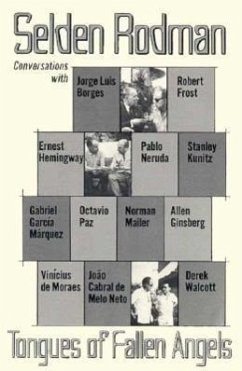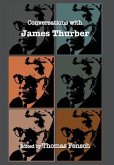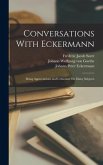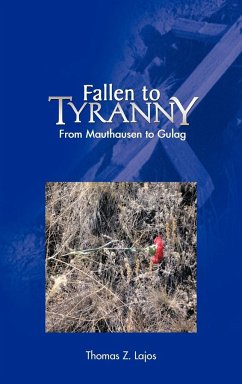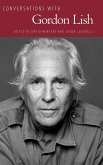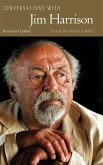Selden Rodman's Tongues of Fallen Angels is a collection of conversations with twelve ranking authors, leading men of letters in the Western Hemisphere, with accompanying informal photographs. From Spanish America: Jorge Luis Borges, Gabriel Garcia Márquez, the late Pablo Neruda, and Octavio Paz. From Brazil: Vinicius de Moraes and Joan Cabral de Melo Neto. From Trinidad: the poet-playwright Derek Walcott. From the United States: Robert Frost, Allen Ginsberg. Ernest Hemingway, Stanley Kunitz, and Norman Mailer. An impressive list, and all the more so given Rodman's remarkable power to give human substance to figures whose everyday words have been generally ignored in favor of their writings and other public pronouncements. When Rodman's Conversations With Artists appeared in 1957, it aroused a storm of controversy, intentionally polemical, it became a storm center in the battles then raging in the art world. Rodman's journals also contained records of fiery bouts with novelists and poets of stature. He was urged at the time to publish them, but refrained, preferring to wait for a book of a different, more empathic intent, in putting together Tongues of Fallen Angels, Rodman--the editor of such seminal anthologies as One Hundred British Poets and One Hundred American Poems--forcefully asserts the essential social role of the creator. ''The minor poet," he declares, ''is primarily concerned with form or innovation; the major one uses these tools almost unconsciously to say something he feels he has to say--and which the world will be better for hearing."
Hinweis: Dieser Artikel kann nur an eine deutsche Lieferadresse ausgeliefert werden.
Hinweis: Dieser Artikel kann nur an eine deutsche Lieferadresse ausgeliefert werden.

